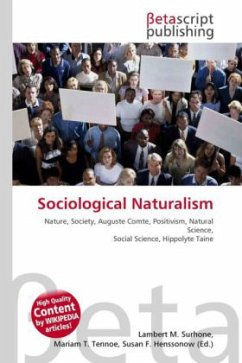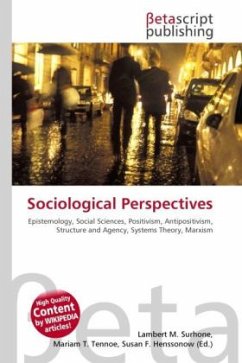High Quality Content by WIKIPEDIA articles! Sociological naturalism is a theory that states that the natural world and social world are roughly identical and governed by similar principles. Sociological naturalism, in sociological texts simply referred to as naturalism, can be traced back to the philosophical thinking of Auguste Comte in the 19th century, closely connected to positivism, which advocates use of the scientific method of the natural sciences in studying social sciences. It should not be identified too closely with Positivism, however, since whilst the latter advocates the use of controlled situations like experiments as sources of scientific information, naturalism insists that social processes should only be studied in their natural setting. A similar form of naturalism was applied to the scientific study of art and literature by Hippolyte Taine (see Race, milieu, and moment). Contemporary sociologists do not generally dispute that social phenomena take place within the natural universe and, as such, are subject to natural constraints, such as the laws of physics. Up for debate is the nature of the distinctiveness of social phenomena as a subset of natural phenomena.
Bitte wählen Sie Ihr Anliegen aus.
Rechnungen
Retourenschein anfordern
Bestellstatus
Storno








